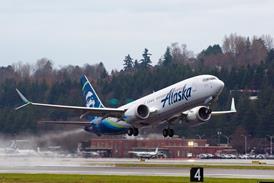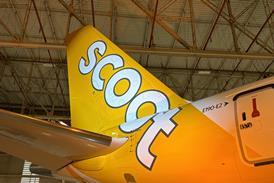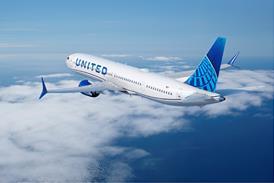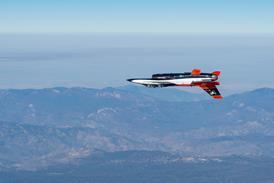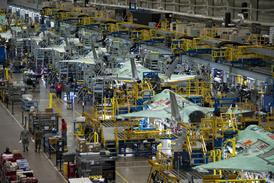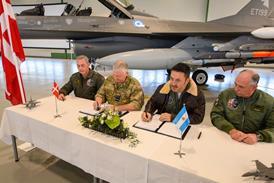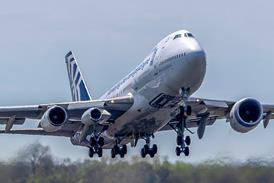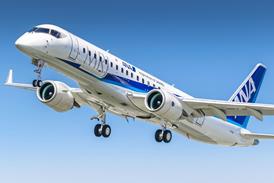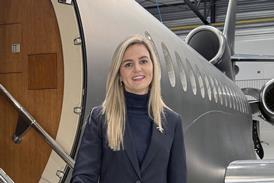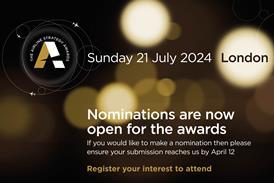Boeing has released more than a hundred pages of documents to the US Congress, including internal text messages and emails which include language that mocks airline customers, the Federal Aviation Administration and other regulators, as the planemaker navigated the certification process of the now-grounded 737 Max.
The messages, which contain foul language and disparaging remarks, were immediately criticised by Peter DeFazio, chair of the House Committee on Transportation and Infrastructure.
“These newly-released emails are incredibly damning,” DeFazio says in a statement released on 9 January. “They paint a deeply disturbing picture of the lengths Boeing was apparently willing to go to in order to evade scrutiny from regulators, flight crews and the flying public, even as its own employees were sounding alarms internally.”
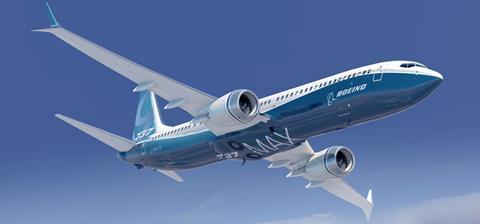
Boeing responded with a release of its own, apologising for the language used and the sentiments expressed.
“These communications contain provocative language, and, in certain instances, raise questions about Boeing’s interactions with the FAA in connection with the simulator qualification process,” Boeing responded in a statement released on 9 January. “These communications do not reflect the company we are and need to be, and they are completely unacceptable.”
The FAA responded that its experts “determined that nothing in the submission pointed to any safety risks that were not already identified as part of the ongoing review of proposed modifications to the aircraft”.
“While the tone and content of some of the language contained in the documents is disappointing, the FAA remains focused on following a thorough process for returning the Boeing 737 Max to passenger service,” the FAA says. “We continue to work with other international aviation safety regulators to review the proposed changes to the aircraft. Our first priority is safety, and we have set no timeframe for when the work will be completed.”
The documents released to the media on 9 January were redacted, with names of the conversation participants blanked-out.
NO SIMULATOR TRAINING
In one conversation dated 28 March 2017, a Boeing employee identified only as “737 chief technical pilot” wrote to a colleague that the company would reject any regulator’s requirement for simulator training when transitioning from the 737NG to 737 Max.
Pilot Mark Forkner had been identified in previous email correspondence as “737 chief technical pilot”, however it is unclear whether he also authored these emails. Forkner now works for Southwest Airlines.
“I want to stress the importance of holding firm that there will not be any type of simulator training required to transition from NG to Max. Boeing will not allow that to happen. We’ll go face-to-face with any regulator who tries to make that a requirement,” the pilot writes.
Later, on 6 June 2017, the “737 chief technical pilot” wrote to an airline customer that no simulator training should be required when pilots transfer from the NG to Max.
That airline, which may have been based in Indonesia, intended to have its pilots complete simulator training and classroom computer-based training before transitioning, messages show. The emails mention “Jakarta time” and “DGCA”, also the acroynm of Indonesia’s Directorate General of Civil Aviation.
“There is absolutely no reason to require your pilots to require a Max simulator to begin flying the Max,” Boeing’s chief technical pilot writes. “Once the engines are started, there is only one difference between NG and Max procedurally, and that is that there is no OFF position of the gear handle. Boeing does not understand what is to be gained by a 3h simulator session, when the procedures are essentially the same.”
In a related email, the chief technical pilot says simulator time would create “a difficult and unnecessary training burden for your airline, as well as potentially establish a precedent in your region for other Max customers”.
After the airline confirmed it would not require additional simulator training, on 7 June, the Boeing pilot wrote to a colleague, “Looks like my jedi mind trick worked again!”
The colleague responded: “Haha, I’ll send you to negotiate piece [sic] in the Middle East next.”
In the meantime, following two fatal accidents and the aircraft’s grounding, now in its tenth month, Boeing advised two days ago that pilots should complete flight simulator training prior to returning to the cockpits of 737 Max.
In another conversation dated 12 December 2017, one employee refers to the DGCA, India’s civil aviation authority, as “even stupider”. The same employee says later in the conversation “I’m drinking obviously”.
On 8 February 2018, one colleague asks another: “Would you put your family on a Max simulator trained aircraft? I wouldn’t.” The colleague answers: “No”.
‘WHINING’ FAA
In other messages, the correspondents complain about the FAA’s “whining”, and internal processes which slowed development of the aircraft.
In messages from 2013, Boeing employees discuss the company’s decision to refer to the 737 Max’s Maneuvering Characteristics Augmentation System (MCAS) as part of the Max’s speed trim system.
Framing MCAS, which was new to the Max, as part of an existing system would avoid “driving additional work due to training impacts and maintenance manual expansions”, the messages say.
MCAS is the automated flight control software that contributed to the October 2018 crash of a Lion Air 737 Max 8 and the March 2019 crash of an Ethiopian Airlines Max 8.
In another email on 1 June 2018, a Boeing employee describes the planemaker’s culture as corrupted by a leadership team obsessed with meeting project deadlines.
“It’s systemic. It’s culture,” the employee states to a colleague. “It’s the fact that we have a senior leadership team that understand very little about the business and yet are driving us to certain objectives.”
Because names in the text messages have been deleted, it is difficult to discern if the correspondents are the same or different employees.
On 20 September 2016, one writer says of the 737 Max, “this is a joke” and “this airplane is ridiculous”.
A few months later, on 24 April 2017, an employee writes, “this airplane is designed by clowns who in turn are supervised by monkeys.” They call the design of the aircraft “piss poor”.
In May 2018, an employee tells another that they still “haven’t been forgiven by god for the covering up [what] I did last year”. “Can’t do it one more time. the Pearly gates will be closed…” The colleague responds: “I just received a shovel to start my journey to the hotter place….”
Boeing says it “proactively” gave the communications to the FAA in December, and provided copies to House and Senate committees. Boeing released the documents publicly “at the encouragement of” DeFazio and Senator Roger Wicker, chair of the Senate Committee on Science, Commerce and Transportation.
“We regret the content of these communications, and apologise to the FAA, Congress, our airline customers, and to the flying public,” Boeing says, adding it has responded with an internal reorganisation, among other changes, aimed at improving safety. “The language used in these communications, and some of the sentiments they express, are inconsistent with Boeing values, and the company is taking appropriate action in response. This will ultimately include disciplinary or other personnel action, once the necessary reviews are completed.”
Story updated on 10 January to note that the 6 June 2017 emails appear to refer to an airline based in Indonesia, not India.

